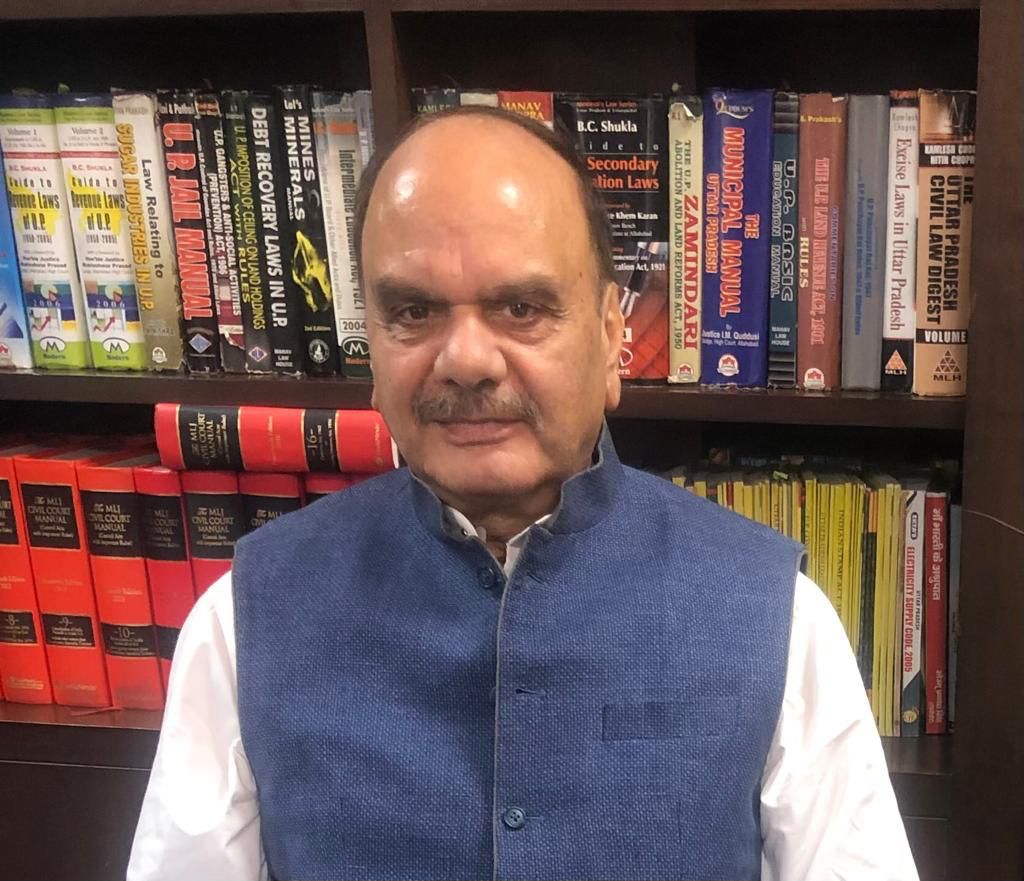The important constitutional question of the legality of repealing Article 370 of the Constitution should be better left to the Supreme Court, Senior Advocate Ashok Bhan told law students at an interaction.
Speaking to Kashmiri law students from colleges affiliated to the Indraprastha University, Bhan, also the Chairman, Kashmir (Policy and Strategy) Group, said competitive narratives on Kashmiri’s special status and Article 370 would make the election campaign murkier.
Bhan said, “Kashmir situation has wheels within wheels. It is enveloped in a dense opacity with layer upon layers of distortions of history, self-serving myths and competing political interests. Peeling off these layers by revisiting history, without prejudice on the real issues involved can only help in a better way forward.”
He said the question is whether the Kashmiri political leadership is honest in its efforts to build a narrative that is in peoples’ interests.
The People’s Alliance for Gupkar Declaration (PAGD) is vocally demanding restoration of Article 370 and say that the abrogation is per se illegal and unconditional. The Supreme Court is examining the constitutional validity of abrogation and, simultaneously, the peoples’ movement in Kashmir is also a challenge to legality of the abrogation, Bhan said.
On the other side, Ghulam Nabi Azad, who recently quit the Indian National Congress after having been part of UPA Government and Congress Working Committee for more than four decades, has ventured to test the waters in for his political future, Bhan said.
Azad has launched a narrative that restoration of Article 370 is impossible as long as the BJP is in power and till the anti-BJP dispensation takes over the Central government and muster two-thirds majority in Parliament. Therefore, misleading the people for an unachievable objective amounts to further compound the misery of the common people, Bhan said.
What exactly happened on August 5, 2019:
No Constitution Amendment Bill was brought in Parliament or passed
On August 5, 2019, the Government issued an order under Article 370(1) superseding a similar order of 1954 and adding clause(4) to Article 367 (the interpretation of article of the constitution).
On the same day, the Government brought a resolution before Parliament for the repeal of Article 370 and it was passed by both Houses under the proviso to Article 370(3) of the Constitution.
On the same day, the Government introduced and passed in Rajya Sabha, The Jammu & Kashmir (Reorganisation) Bill 2029, bifurcating the State and created two Union territories. It was passed by Lok Sabha on the next day. This was done under Article 3 of the Constitution.
On August 6, 2019, the President made a notification under Article 370(3) of the Constitution declaring that all the clauses of Article 370 shall as on August 6, 2019 cease to be operative except a sole new clause that was introduced by the same notification.
Bhan said the PAGD has a consistent ideological foundation for its demand for restoration of special status under Article 370 of the Constitution. It maintains this was the basis of constitutional arrangements between Kashmir and New Delhi supported and endorsed by the Constituent Assembly. Hence, no compromise.
On the other hand, Ghulam Nabi Azad conscientiously seemingly is raising a narrative on special status on realism, worldly wisdom and speaks the language of his heart. Some Congressmen are opposing Azad by spreading half-truths. It is in public domain that half the CWC endorsed the abrogation of Article 370 and the leadership maintained silence. It was Azad who spearheaded the frontal attack on the Government, Bhan said, in the Rajya Sabha and his G-23 colleagues in Lok Sabha, Manish Tewari and Co. Kashmiris need to give Azad the benefit of vast political wisdom. He deserves a reasonable hearing by people in the country and particularly in Jammu & Kashmir Union Territory. People of the Union Territory have a Hobson’s choice to choose their future political dispensation through democracy.
When Article 370 was brought, it was temporary because by that time, the constituent assembly of Kashmir had not been constituted, and as such it had not met. Because the constituent assembly of Kashmir has taken a decision that Jammu & Kashmir shall be part of India and to have this kind of special status, they endorsed Article 370, and the constituent assembly got dissolved.
Article 370 itself envisaged the President of India can modify it, and whether “modify” can mean repeal is a question for the Supreme Court to determine, Bhan added.


